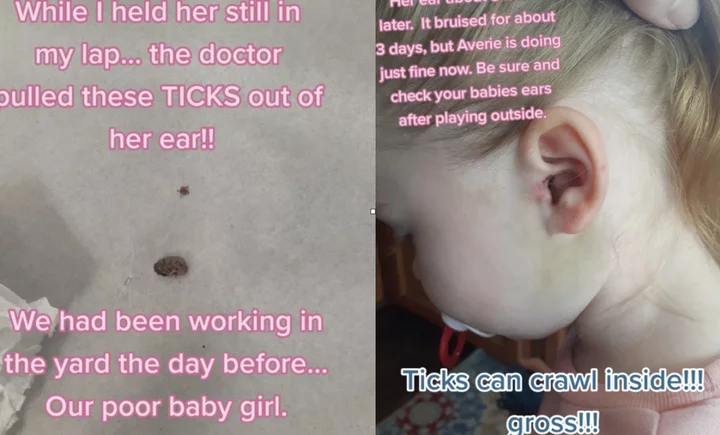
Mother shares horrifying moment she found ticks living in her daughter’s ear
A mother has spoken out about the horrifying moment that she discovered ticks inside her daughter’s ear. The parent, Jessic Loach, took to TikTok this week to share a photo montage about the experience. Loach’s video started off with a picture of her daughter’s ear, which appeared to have a black mark inside it. “I went to wash my daughter’s ears during bath time, and it looked like she had shoved something in her ear,” she wrote in the text over the photo. She went on to share another photo of her daughter, Averie, itching her ear and explained what she did next. “Immediately called her doctor and they said bring her in ASAP,” she wrote. Loach also included a photo of her child at the doctor’s office, sharing that her daughter “acted fine, except for when someone messed with or wanted to look in her ear”. She went on to share another photo of her daughter’s ear, which was red on the inside and appeared to have a scab in it. She addressed her fears over the situation, adding: “I had no idea what to expect and was so scared for our baby girl.” Loach then posted a picture of one of the ticks that the doctor “pulled” out of her daughter’s ear. She noted how the tick could have gotten in there, adding: “We had been working in the yard the day before…Our poor baby girl.” She concluded her photo montage with one last picture of Averie’s ear as it was healing. She said the child was doing better before urging fellow parents to be on the look out for ticks. “Her ear about five hours later,” she wrote in the text over the photo. “It bruised for about three days, but Averie is doing just fine now. Be sure and check your babies’ ears after playing outside. Ticks can crawl inside!!! Gross!!!” After Loach’s video quickly went viral, with more than 2.1m views so far, the mother spoke to People about the experience. “The removal process was very traumatising as you have to hold the child still to remove items safely,” she explains. “A two-year-old just doesn’t understand what the doctor is trying to do.” She added: “I had no idea it was a tick until the doctor started removing it from her ear.” The mother also said Averie has fully recovered one month after the incident occured. “I’m just glad she didn’t have any after effects,” she said. Since posting the video, Loach said that many parents told her about their experiences where ticks crawled onto their children. “I’ve learned it happens more than I could have ever imagined,” she added. According to the National Institutes of Health (NIH), it’s important to properly remove a tick when found on one’s body. “There is a lot of folklore about how to take a tick out of your skin. Some people even talk about having a lighted cigarette close by, things like that,” said José Ribeiro, who is the chief of the Vector Biology Section of the Laboratory of Malaria and Vector Research in NIAID’s Division of Intramural Research. “The most important thing is just to use appropriate forceps such as tweezers. Grab the whole tick and pull it out.” The publication also noted that the best way to prevent ticks is by wearing clothes that cover ones’ arms and legs, when outside. People could also opt to tuck their pants into their socks to ensure that their bodies are completely covered, especially when in the woods or on a hiking trail. It’s also best to remove the tick as quickly as possible, as it takes about 36 hours for Lyme disease to be transmitted from a tick. Per NIH, this bacterial infection, which people can get from “the bite of an infection tick,” usually starts with symptoms like a rash, fever, or headache. If not treated early, the infection can impact a person’s heart and nervous system. The Independent has contacted Loach for comment. Read More A woman secretly recorded her husband at home. Now she’s divorcing him Watch: Mother ‘can barely move her hands’ after years of gel nails Mother claims using a miraculous eye cream has taken years off her in just weeks How has Camilla’s style evolved since she became Queen Consort? A woman secretly filmed her husband at home. Then she left him Mother shows off her glowing skin after using miraculous eye cream
2023-05-11 02:59
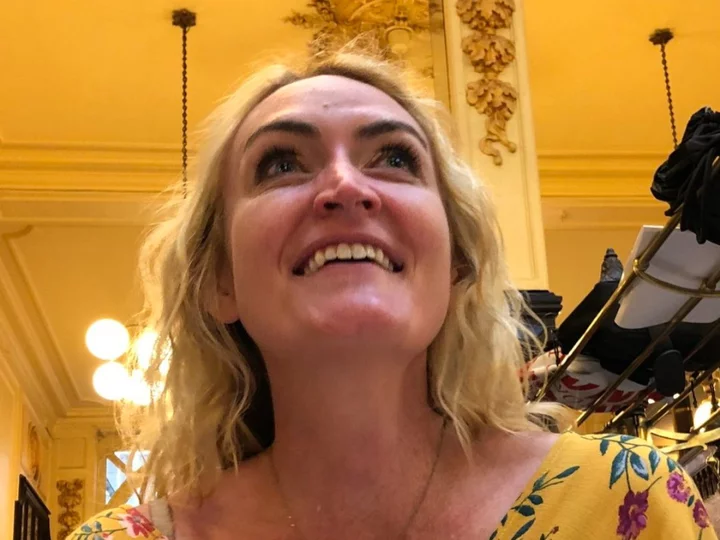
‘Queen of the mommy bloggers’ Heather Armstrong dies aged 47 after detailing battle with depression
Heather Armstrong – an influencer and original “mommy blogger” known by the name “Dooce” – has died aged 47, her social media confirmed. A post on her Instagram account appeared to confirm her passing on 9 May. “Heather Brooke Hamilton aka Heather B Armstrong aka dooce aka love of my life. July 19, 1975 - May 9, 2023,” the caption read. “‘It takes an ocean not to break.’ Hold your loved ones close and love everyone else.” No further details on her cause of death have been revealed. Armstrong, who lived in Salt Lake City, Utah, rose to internet fame in the early 2000s with her popular blog, Dooce.com. The mother of two, often hailed as the “queen of the mommy bloggers” wrote candidly about parenthood, her struggles with sobriety and depression, and why she left the Church of Jesus Christ of Latter-Day Saints, according to Vox. She was named one of Forbes’ top 30 most influential women in media in 2009, and went on to author many books, including Things I Learned About My Dad: In Therapy,It Sucked Then I Cried, and The Valedictorian of Death. More follows… Read More Mother shares horrifying moment she found ticks living in her daughter’s ear Jennifer Garner recalls her shocked reaction after learning about vaginal collapse Jennifer Lopez ‘understands’ why her 15-year-old twins ‘don’t want to talk’ to her
2023-05-11 02:57

Jennifer Lopez explains why she ‘understands’ that her 15-year-old twins ‘don’t want to talk’ to her
Jennifer Lopez has shared some thoughts about motherhood and explained why her 15-year-old twins, Max and Emme, “don’t want to talk” to her anymore. The 53-year-old singer talked about how her children, who she shares with ex-husband Marc Anthony, are in the midst of their teenage years during a recent appearance on The View. She noted that when raising her children with husband Ben Affleck, she’s been more of the “bad cop” instead of the good one. “I remember my mom saying to me, ‘I’m always the bad guy, I got to discipline you,’” she said about her mother, Guadalupe Rodríguez. “And there is some truth to that. You get a little bit of the brunt of it.” After tying the knot in 2022, Lopez blended her family with Affleck’s, who shares three children with his ex-wife, Jennfier Garner: Violet, 17, Seraphina, 14, and Samuel, 11. During her appearance on The View, the Shotgun Wedding star noted how her mother’s wisdom about parenting stayed with her, as her twins have started to spend less time with her. “I’m experiencing this now, you know we all experience it for the first time with our own kids,” Lopez explained. “And you’re just like, ‘Oh, this is what she was talking about.’ This is the time where your kids don’t want to talk to you. And they’re kind of individuating from you.” She continued: “And it’s all necessary. And intellectually, I understand it, but my heart, my heart hurts.” When TV host Sunny Hostin poked fun at how teenagers sometimes stay “locked up in their rooms,” Lopez agreed. She explained how she encourages her twins to come out of their rooms, as she exclaimed: “Let’s hang out. I miss you!” This isn’t the first time that Lopez has opened up about her relationship with her twins. During an appearance on The Ellen DeGeneres Show in February 2022, the Marry Me star discussed how her children feel about having a famous mother. “They love it and they don’t. I think they’re very proud. They love me, I love them,” she said. “The three of us are like super, super close. But I think it’s a thing that people know who their mom is. They’re navigating that. They’re teenagers now. Their friends know things.” Earlier this year, Lopez took to Instagram to share a video tribute to Max and Emme in honour of their 15th birthday. Affleck also makes an appearance in the video, as he was seen hugging Max in one short clip, while another photo showed him posing at a table with his wife and her two children. “Happy birthday to my beautiful, brilliant coconuts,” the “On the Floor” singer wrote in the caption. “I am so proud of you both in every single way. You bring so much joy and happiness to my heart and soul. I love you beyond forever.” Read More Jennifer Lopez’s mom says she ‘prayed for 20 years’ that her daughter and Ben Affleck would reunite Jennifer Lopez praises Ben Affleck for being the ‘best dad’ to her children Jennifer Garner says she ‘works really hard’ to avoid seeing stories about ex-husband Ben Affleck in the press Met Gala video shows Jennifer Lopez revealing her secret to perfect red carpet photos Jennifer Lopez praises Ben Affleck for being the ‘best dad’ to her children Jennifer Lopez’s mom ‘prayed’ that her daughter and Ben Affleck would reunite
2023-05-10 23:18
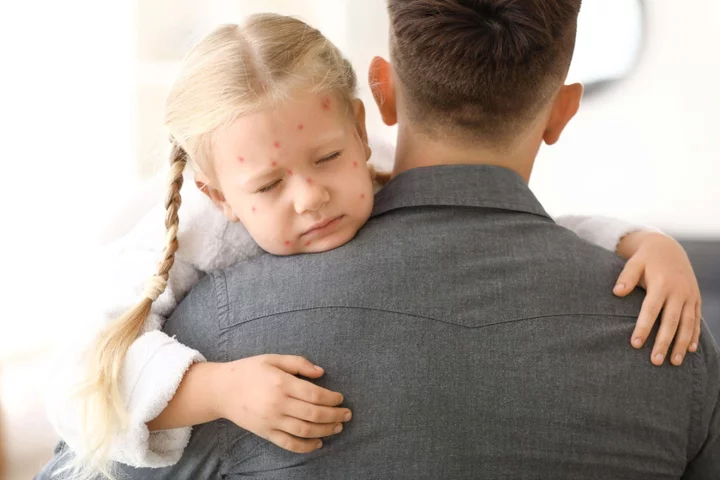
Can I go to work if my child has chickenpox?
Chickenpox is extremely common and spreads easily among children – resulting in that telltale itchy red rash. So it’s no surprise that many parents at some point find themselves asking: can I go to work if my child has chickenpox? What do parents need to know? We talked to healthcare professionals to find out. Can I go to work if my child has chickenpox? General NHS advice is anyone with chickenpox should stay off school or work until no longer contagious (when the spots have all scabbed over). But if it’s only your child who has chickenpox and not you, what then? “Parents can go to work if their child has chickenpox, as long as their child has appropriate care in place,” says Dr Zulqarnain Shah, medical director at SSP Health and GP at SSP Health practice Colne Road Surgery. “Chickenpox is a highly contagious viral infection that can spread easily to others who have not had the illness or been vaccinated against it. Isolating a contact [eg. the parent of an infected child] is not necessary with chickenpox, as it is so common.” However, there may be times when extra caution is sensible. Most of the time, chickenpox is unpleasant but not serious – but it can cause complications in certain cases, such as for newborn babies, and people who are pregnant or have a weakened immune system. So if you are unsure whether you might have contracted the virus from your child and there is a chance of spreading it to somebody potentially vulnerable, it might be a good idea to seek advice. How long does chickenpox usually last? “Chickenpox typically lasts for two weeks,” says Dr Yiannis Ioannou, consultant paediatrician at The Portland Hospital (part of HCA Healthcare UK). “During the first few days of infection, new spots can appear all over the body. However, these should dry up after around five to 10 days. Scabs will form and eventually fall off. You may notice new spots appearing as older ones are healing. This is normal and nothing to worry about, as it can take around two weeks for all spots to dry up. “Unfortunately, it can be spread very easily. Someone infected with chickenpox can spread the disease to others two days before spots appear. Chickenpox can also be passed on through pregnancy. This can pose a threat to your unborn child,” Ioannou adds. “If you begin to suffer from any symptoms related to chickenpox [while pregnant], consult with your doctor as soon as possible.” Shah also suggests checking in with your GP if you are pregnant and your child gets chickenpox, but you’ve never had it before. How do you treat chickenpox? Chickenpox should clear up on its own eventually, so treatment is mostly about easing symptoms and preventing complications. Shah says: “Parents can give their child paracetamol to help reduce fever and relieve pain. Ibuprofen is not recommended, as it can cause a reactive rash. It is also important to keep the skin clean and dry to prevent infection of the blisters. Avoid using aspirin as it may increase the risk of Reye’s syndrome, a rare but serious illness that can occur in children with chickenpox.” Chickenpox can be very itchy. Ioannou says applying calamine can help. “You can often buy this over the counter at your local pharmacy. Dab the lotion directly onto the spots to provide relief.” Keeping babies’ and toddlers’ nails trimmed and clean is also helpful, plus gloves and mittens can help prevent scratching. Are there times when chickenpox requires medical advice for children? Shah suggests chickenpox in children is usually mild. “However, there are certain signs that may indicate a need to speak to a doctor and get additional advice,” he adds. “These include a high fever that lasts more than four days, severe coughing or trouble breathing, severe skin rash, or if the child seems very sick or weak. Parents should also seek medical attention if their child has a weakened immune system.” Ioannou says it’s important to be mindful of dehydration in babies and younger tots too. He adds: “If you are worried about your baby or child it is always important to seek medical advice.” Read More Charity boss speaks out over ‘traumatic’ encounter with royal aide Ukraine war’s heaviest fight rages in east - follow live What is mitochondrial donation treatment and who can get it? Pensioner, 85, shares the simple switch that’s helped him to do 650,000 press-ups Angelina Jolie shares tribute to late mum and urges women with family cancer history to get checked
2023-05-10 21:54

Pensioner, 85, shares the simple switch that’s helped him to do 650,000 press-ups
An 85-year-old whose life changed when he adopted a vegan diet in his 60s and then started to exercise in his 80s is now challenging himself to complete one million press-ups before his 90th birthday and 100 ultramarathons before his 100th birthday entirely “fuelled by plants”. Paul Youd, who lives with his wife Teresa, 75, in Taunton, Somerset, decided to take up running in his 40s, but gave up after six weeks as his knees were “so sore” due to his arthritis – he said “everything was painful” and he “couldn’t shake hands, change gears, pull up the duvet or hold a kettle”. The grandfather-of-five then bought a bicycle to reduce the strain on his joints, but it was not until he decided to eliminate meat in his 60s to “avoid mad cow disease” and later try a completely vegan diet that he said he noticed incredible health benefits, including reduced inflammation. Paul, a keen animal rights activist who formerly worked in the RAF and Royal Australian Air Force and later became a bread maker, teaching at local schools and launching his own blog called No Bread Is An Island, said he initially eliminated meat and cheese from his diet, before giving up all animal products. He then decided he wanted to learn how to do a press-up aged 80, and has since set himself a target of doing one million before he turns 90, completing more than 650,000 so far. Now, aged 85, he is on a mission to take part in 100 ultramarathons before his 100th birthday and is raising money for the vegan campaigning charity Viva!. “You don’t know what you’re capable of until you actually try it,” Paul said. “Try something and get outside of that comfort zone, otherwise it’s stultifying. “I’m living my best life – who’d have thought it? “I’m now 85 and I’m living my best life, I really am.” Paul worked in communications in the RAF and Royal Australian Air Force and as a radio officer in the Government Communications Headquarters – otherwise known as GCHQ – before taking early retirement in 1993. He then decided to train as a teacher, specifically to fulfil his passion for bread making, which he said is “a tool for family learning”, and ended up teaching until the Covid pandemic. It was at this point, aged 80, that Paul’s fitness journey began. “I looked at home exercises and started doing lots of those, but mainly press-ups, and I’ve been doing press-ups ever since really,” Paul explained. “I’ve got this challenge to do a million press-ups between the ages of 80 and 90.” Prior to the first lockdown, Paul could not perform one press-up – but he now does 1,000 every three days while listening to the news or a podcast, and has done more than 650,000 so far. After previously failing to take up running in his 40s owing to the pain caused by his arthritis – the common condition that causes pain and inflammation in a joint – he decided to try again in his 80s as he said his vegan diet, which he adopted in his 60s, had “changed (his) life”. A vegan diet is based on plants, such as vegetables, grains, nuts and fruits, the NHS says. Vegans do not eat foods that come from animals, including dairy products and eggs, and Paul said his mantra at the time was: “I don’t want another animal to die so that I can live.” Paul realised he was no longer in pain while chasing one of his grandsons around the dining room table, and this prompted him to start running around his garden. Soon enough, Paul improved his stamina and after three months he said he felt “confident to do a 10k every day, for 10 days, to raise money”. “I thought that I was going to get more tired as the week went on, but I didn’t,” Paul explained. “I got stronger and in the end I did 110k rather than the 100k I’d set myself.” The father-of-two said he quickly became “addicted” to running and wanted to “keep up this level of fitness”, so he was advised to look into ultramarathons – endurance running races or treks beyond the standard marathon distance of 26.2 miles (42.2km). Paul then completed his first ultramarathon in July 2021 – the Devon Coast to Coast, which is approximately 100km long – and said he has been “hooked” ever since. He said he loves “the euphoria” and “freedom” he experiences while running. “I just thought, I can do this,” Paul said. “I realise I should have been a runner all along because I just fell into it, I love it. “It’s a feeling of freedom and it’s a feeling of accomplishment – I’ve gone out and done this. “I’ve never ever regretted going out and training … and sometimes you get to that state of mind where you think, gosh, I could run forever, and it’s a good feeling.” Paul has completed nine ultramarathons so far and has a collection of medals on display in his home, but wants to do 91 more before turning 100 – all supported by his family and wife Teresa, who says he is “determined”. Being a vegan and animal rights activist, he said his motivation to keep going is “the desire to see animals not hurt or tortured”. He added: “If I can do anything to mitigate or alleviate that, then I will.” Some of Paul’s ultramarathon races will be virtual, where he will cover the full distance using an app, while the others will be at a specified location. He completed a 250km simulated trip from Russia to Lapland before Christmas last year using the exercise tracking app Strava to measure his distance. To maintain his fitness levels, Paul runs or walks every weekday, covering a distance of 60km per week on average, and uses a kettlebell for strength and conditioning exercises. He said he takes no medication and wants to maintain his health for as long as possible, as he does not want to “bother the NHS or the care system”. He follows a strictly vegan diet and will usually have a fruit smoothie every day – comprising kale, spinach, dates, blueberries and bananas – along with flax seeds, nuts and “lots of leafy green vegetables, beans, lentils and legumes”. He also takes beetroot juice as a performance enhancer. Paul, who still bakes bread in his spare time, said he has realised “ultramarathons are within his comfort zone” – something he never thought he would say – and he would encourage anyone else to take up running or try a vegan diet as the results for him have been “remarkable”. “We can all do much more than we think we can,” Paul said. “If I’d have recognised the fact that we can all do more than we think we can many years ago, if I’d have done that, who knows what would have happened? “But I got there in the end.” Read More Robert De Niro reveals he’s welcomed seventh child at 79-years-old Woman flew 900 miles in wrong direction due to last-minute gate change Four ‘red flag’ bowel cancer symptoms that can show two years before diagnosis Charity boss speaks out over ‘traumatic’ encounter with royal aide Ukraine war’s heaviest fight rages in east - follow live
2023-05-10 19:18

Nick Cannon shares Mariah Carey’s ‘high frequency’ reaction to actor having 12 children
Nick Cannon has shared ex-wife Mariah Carey’s reaction to his large, extended family during a recent podcast appearance. Cannon, who has 12 children with six different women, shares twins Monroe and Moroccan, 11, with the “Hero” singer. In an episode of The Jason Lee Podcast released on Tuesday (9 May), the Masked Singer host said Carey is “high frequency” about him having so many children. The 42-year-old added: “She always asks me, ‘You aight? You good? How you doing? You handling it all?’” Cannon and Carey were married from 2008 until 2014, when they filed for divorce Explaining how Carey feels about Cannon fathering so many children, he said: “She’s like, as long as you don’t bring none of that bulls*** to the Manor of Carey. “Like, she lives in her own world, nothing can infiltrate that stuff. When we talk daily, she’s just checking on my spirit,” Cannon continued. Last month, Cannon said fatherhood is “my number one and first priority” and that providing for his children is his “goal in life”. He told People: “I understand that my lifestyle isn’t typical to society and can be viewed as unorthodox in some ways. But my goal in life is just to love my kids and be there for my kids and provide for them.’ During a new interview with the Los Angeles Times, Cannon defended himself against claims he’s a “deadbeat dad”, explaining he makes over $100m a year to provide for them. He said: “Right now the narrative is, ‘He has a bunch of kids,’ But I’m really at a place now where I don’t care what people know. I’d rather just operate. “It’s more about really being a good person instead of telling people you’re a good person,” Cannon added. Cannon recently sparked backlash after saying he would be “all in” to have a baby with Taylor Swift, during an appearance on The Howard Stern Show. In addition to co-parenting Monroe and Moroccan with Carey, Cannon shares sons Golden Sagon, six, and Rise Messiah Cannon, six months, and daughter Powerful Queen, two, with Brittany Bell. He has twins Zion Mixolydian and Zillion Heir, 21 months, and daughter Beautiful Zeppelin, four months, with Abby De La Rosa. Cannon has a son, Legendary Love, eight months, with Bre Tiesi. He has a five-month-old daughter Onyx Ice Cole with LaNisha Cole. He’s also father to two children with Alyssa Scott, son Zen, who died at five months old in December 2021 after being diagnosed with brain cancer, and daughter Halo Marie, three months. Read More Viral coronation song: No, the choir did not sing ‘I love vagina, Camilla’ Robert De Niro becomes father to seventh child aged 79 Tom Holland reveals he’s been sober for over a year
2023-05-10 17:17
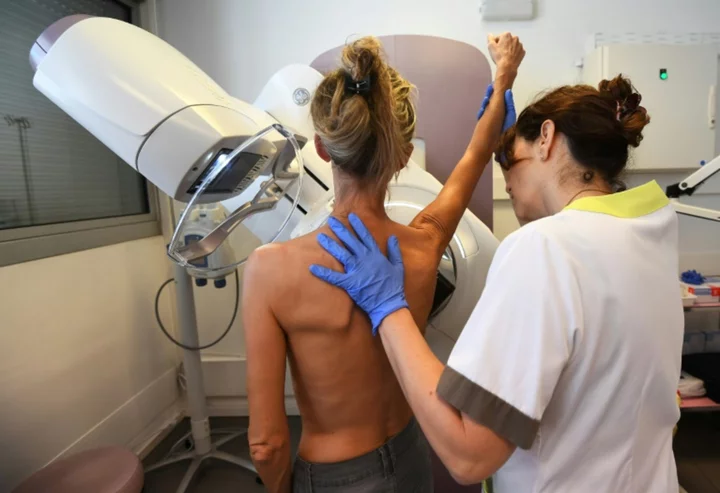
Influential US health body recommends mammograms from age 40
All women should get mammogram screening for breast cancer starting from age 40, rather than 50, an influential US health body announced Tuesday, a move it...
2023-05-10 01:25

Angelina Jolie shares tribute to late mum and urges women with family cancer history to get checked
Angelina Jolie has urged women with a history of cancer in their family to “look after” themselves and “take mamograms, blood tests and ultrasounds”. The actor posted a touching tribute to her late mum on Instagram for what would have been her 73rd birthday. Marcia Lynne ‘Marcheline’ Bertrand – also an actor – died of ovarian cancer in 2007, after also being diagnosed with breast cancer. Jolie underwent a prophylactic double mastectomy in 2013, because she carries a gene called BRCA1 that significantly increases the odds of developing breast or ovarian cancer. The 47-year-old posted: “[My mother] passed away 15 years ago after a long struggle with breast and ovarian cancer”. “In June, I will be a month away from the age when she was diagnosed. I have had preventive surgeries to try to lessen the chances but I continue to have check ups. “My mom loved Hendrix. And would always sign her letters Kiss the Sky. It took on new meaning after she passed. “Sending my love to those who have also lost loved ones and strength to those who are fighting at this very moment for their lives and the lives of those they love. “And to other women, please take the time to look after yourself and go for your mammograms and blood tests or ultrasounds, particularly if you have a family history of cancer.” What the experts say Ovarian cancer affects the two ovaries that store eggs. Its symptoms are often overlooked. According to Target Ovarian Cancer, the four main symptoms are persistent bloating; pelvic or abdominal pain; feeling full or a loss of appetite and an increased need to urinate. “The term bloating is often used to describe a feeling of fullness in the tummy, which can often be associated with the lower abdomen looking swollen,” said Dr Susanna Unsworth, women’s health expert and in-house gynaecology expert for Intimina. “Bloating is often a consequence of bowel issues, but it is also recognised as one of the potential symptoms of ovarian cancer. “Ovarian cancer has been described as a ‘silent killer’ as the symptoms can often be mild and may go unnoticed in the early stages of the disease,” she added. “By the time someone consults with a doctor, the cancer may have already become quite widespread. Research done in 2021 by CoppaFeel! found that one in seven women in the UK will be affected by breast cancer in their lifetime, and one in nine in Ireland. According to the NHS website, you should see your GP if you find a new lump, thickened skin, a change in the size or shape of your breasts, nipple fluid or discharge, lumps or swelling in your armpits, a change in skin texture or nipple appearance or a rash like eczema. Read More Charity boss speaks out over ‘traumatic’ encounter with royal aide Ukraine war’s heaviest fight rages in east - follow live Georgia Toffolo on Jungle exit: ‘You can show your acne and be beautiful at the same time’ Eurovision: Liverpool’s trendsetting musical icons 14 clever ways to make small rooms look bigger
2023-05-09 19:25

Woman in ‘living hell’ with brain slipping down her spine after ice-skating accident
A 25-year-old who has been mostly bed bound by a painful condition that is causing her brain to slip down her spine is pleading for help to raise funds for lifesaving treatment in the US to stabilise her skeleton. Desperate to raise the £200,000 she needs, Emily Balfour, from London, said she will eventually face permanent disability and is at risk of paralysis if she does not receive PICL, a procedure that injects stem cells into the spine through the back of the mouth. An ice-skating accident at the age of 14 flagged the alarming conditions that cause Emily to now live with “relentless levels of pain”. She was diagnosed with Ehlers-Danlos syndromes (EDS), a collection of rare conditions affecting the connective tissues that make her joints unstable and prone to dislocation, as well as craniocervical instability (CCI), meaning the area where her skull and spine meet is dangerously unstable. Emily also has Chiari malformation, which means the lower part of her brain has herniated and is pushing down through the top of her spinal column. “My health is continuing to deteriorate but I still haven’t managed to raise enough money to get the treatment I need in America,” Emily said. “It would be lifesaving for me and, unless I get the treatment, my life is on pause and stagnated, I’ve become largely bed bound. “And this issue doesn’t just affect me, there are so many people with this condition who are struggling to get funds for treatment abroad. Money is the barrier for us being able to live our lives.” In 2011, Emily was first diagnosed with EDS after an ice-skating accident resulted in a trip to the doctors. I want to keep my sense of agency but it’s getting more and more difficult. Emily Balfour Once a sporty and active teen, Emily is now confined to her bed most days. Due to Chiari malformation, Emily’s brain is pushing down through the top of her spinal column and she said medical specialists have informed her that some of her brain is no longer in her skull. Emily once had dreams of working in film, but she is unable to complete her degree and is also not able to work while she struggles with her health. She said: “I’m not able to participate in life, I’m unable to work and I keep having to delay the completion of my degree. “I have limited vision, I can’t see out of my left eye and I have recently dealt with limb paralysis.” Earlier this year, Emily was rushed to hospital after her left arm became paralysed and swollen. She said: “It looked like a dead person’s arm, I feared I’d never regain mobility of it. “It turned out I was struggling with blood flow to the arm, and I’ve regained limited use of my arm, but I’m high risk of it happening again. “I’ve seen people with these conditions lose function of their arms completely and that obviously concerns me because I live by myself. “I want to keep my sense of agency but it’s getting more and more difficult.” Emily said her brainstem has been damaged to the point where her body is not functioning and she suffers daily from extreme fatigue, periods of paralysis, and loss of vision. It’s incredibly frustrating and I have to accept that I can’t live the life I thought I would. Emily Balfour As a result, Emily now finds herself largely bed bound, is regularly in and out of hospital and suffers from excruciating symptoms which threaten irreversible physical disability and potentially death. Innovative treatment in the US to stabilise her skeleton will be life-changing for Emily, but it comes at a cost. She hopes to raise £200,000 for multiple stem cell treatments, medical care and accommodation in Colorado, USA, where she will undergo a procedure known as PICL to repair and strengthen the ligaments that keep her skull stable. She said: “I’m in relentless levels of pain and, the more activity I do where I’m moving my neck, the worse the pain is. “If I don’t get treatment then it’s looking likely that eventually I will lose the use of one or both of my arms. “The longer it goes on, I’m losing more and more years of my life.” Before her diagnosis, Emily had dreams of working in film, having attended the BFI Film Academy as a teen. She also had plans to travel after finishing her English degree, which is currently on hold. Emily said: “It’s incredibly frustrating and I have to accept that I can’t live the life I thought I would. “I’m seeing other people my age having fun and building their careers but until I get the PICL procedure, I’m stuck. “There are other people who are also in my situation and it’s not an easy journey but I just hope that these treatments will be easier to access closer to home so we can get back to living.” I just want to be able to complete my degree and have a normal life and not be stuck in this living hell. Emily Balfour Emily hopes more research into EDS will result in more treatment options becoming available. For Emily, she says the procedure will be a lifeline and enable her to start living again. “Getting treatment will change everything,” she said. “I wanted to write and make films, but I am now more interested in medicine and want to get a psychotherapy qualification and work in that field. “I used to be so passionate about movies and reading, but because of my brain and vision issues, I’m restricted to audiobooks now. I can’t even do basic things like watching TV, that once brought me so much joy. “I just want to be able to complete my degree and have a normal life and not be stuck in this living hell.” To donate to Emily’s fundraiser, visit: www.gofundme.com/f/urgent-treatment-for-emily. Read More Four ‘red flag’ bowel cancer symptoms that can show two years before diagnosis Mother left ‘looking like Freddy Krueger’ reveals first skin cancer warning sign Woman ‘can barely move her hands’ after years of gel nails Charity boss speaks out over ‘traumatic’ encounter with royal aide Ukraine war’s heaviest fight rages in east - follow live
2023-05-09 15:26
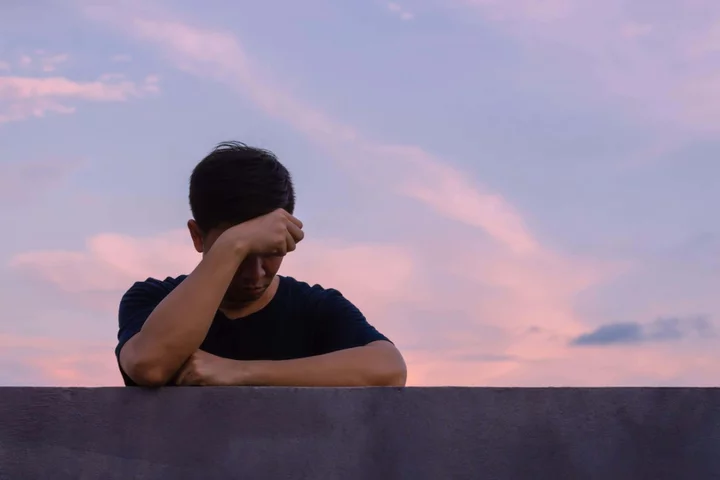
Concern over Huntington’s patients ‘turned away’ from mental health support
Many people with Huntington’s disease are being turned away from traditional mental health support, a charity has claimed as it called for more to be done to help people with the condition. Some mental health services have told patients that they do not have the specialist care needed, leading to the Huntington’s Disease Association calling for better help and support for people living with the disease. Huntington’s disease is a condition that stops parts of the brain working properly over time and can lead to problems with movement, cognition (perception, awareness, thinking, judgment) and mental health. Most people with the inherited condition will start to show symptoms between the ages of 30 and 50 and it gradually gets worse for around 10 to 25 years until the person dies. During all this time, my mental health was worsening. I’d seen my uncle commit suicide a few years before after his diagnosis and him not receiving the correct support and I was at a similar point Daniel Johnston There is no cure for Huntington’s disease or any way to stop it getting worse. A small new poll of 105 people with the condition, shared with the PA news agency, found that 85% had attempted to access community mental health services. But among this group, 56% claimed they had been denied access to care, the Huntington’s Disease Association said. Daniel Johnston, from Horam, East Sussex, said his local mental health service “didn’t know” where to refer him. The 41-year-old father of two said: “When I tested positive for Huntington’s, there was no specific pathway from that point for any mental health support. “I was confused, upset and angry about the diagnosis. I didn’t, and still don’t, fully understand my feelings of confusion and anger. “I wasn’t referred to a professional psychologist or anyone who knows how to support someone with a life-changing diagnosis such as Huntington’s. “During all this time, my mental health was worsening. I’d seen my uncle commit suicide a few years before after his diagnosis and him not receiving the correct support and I was at a similar point. “It was only when I explained to my consultant in our six-monthly appointment earlier this year the extent of my thoughts that he contacted the crisis team for me, and they began a course of daily calls for two weeks. “From this point onwards it’s been getting better, but I feel so sad for others who slip through the net so easily. “It’s as if people get afraid when you mention Huntington’s and there’s confusion around treating Huntington’s and treating mental health. “I’m not surprised by the amount of people being denied access to mental health support services due to having Huntington’s – I have been one of those people and it’s really scary.” The charity said hurdles often occur for patients after they have been referred by their GP for mental health support. Local mental health teams have told patients that Huntington’s “doesn’t fall under the remit of what they’re able to provide treatment for”. The charity has launched a new campaign, Mindful of Huntington’s, to raise awareness of the cognitive impairment symptoms of the disease, and has called for greater access to mental health support. Cath Stanley, chief executive of the Huntington’s Disease Association, said: “Many people think of Huntington’s as a disease which impacts movement, but that is only half the story, and the non-physical symptoms are often overlooked. “At the Huntington’s Disease Association, we find people will most commonly be referred to mental health services due to cognitive symptoms such as irritability and aggression. “Throughout May, we will be focusing on these cognitive symptoms and the life-changing impact they can have. “The stark findings we’re announcing can’t be ignored – people are asking for much-needed mental health support, being turned away, and their health is deteriorating further. It is disappointing but not surprising to see that there’s still a lot of misunderstanding around Huntington’s.” To find out more visit: www.hda.org.uk Read More Charity boss speaks out over ‘traumatic’ encounter with royal aide Ukraine war’s heaviest fight rages in east - follow live Scottish first minister Yousaf calls cost of coronation ‘uncomfortable’ King Charles and other royals return to work after coronation Prince Harry’s ghostwriter opens up about harassment after ‘Spare’
2023-05-09 13:51
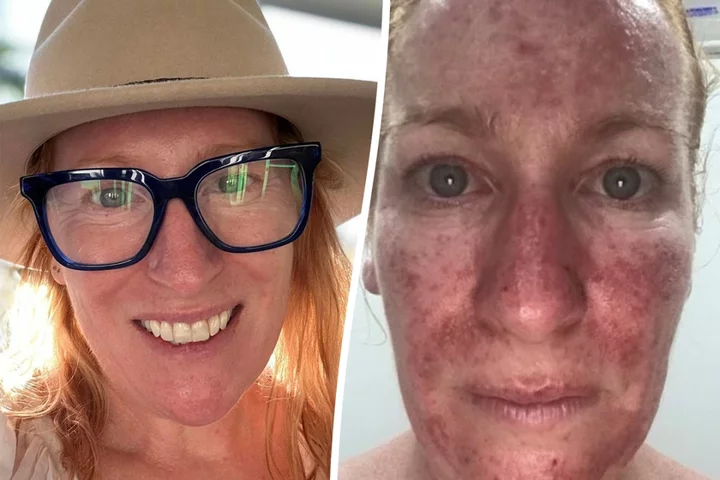
Mother left ‘looking like Freddy Krueger’ reveals first skin cancer warning sign
A woman who says skin cancer treatment has left her looking like Freddy Krueger is urging others to respect the sun. Melissa Lewis, 48, has been living with skin cancer for more than a decade. She has annual treatment which gives her skin a pockmarked look, which she has compared to that of Krueger, a fictional killer. Melissa, from Sydney, Australia, hopes the yearly procedure will keep her cancer at bay. But she wants to speak out to warn others of the harm sun exposure can do, before it’s too late. The mum-of-four, a former nurse, said: “When they said I have Bowen’s disease I thought that was it. “When I looked it up I was like, ‘Oh my god, I am never going to be free’. It is something I have to keep on top of. “I have treatment once a year. I hate it, it is really stressful as I know my skin will hurt. “I will have up to 14 days looking like Freddy Krueger, I can’t go out in public. “I look at my own kids when I have had the treatment and they find it hard to look at me. “I tell them that this is why you put sunscreen on, this is why you are careful.” Melissa first spotted a basal cell carcinoma - a sign of skin cancer - on her leg in 2011. She has since found them on her forehead, nose, chest and back and has lost count of how many have been removed. But in 2018, Melissa discovered what looked like a group of freckles lumped together in front of her ear. Thinking it was best to get it checked out, she paid a visit to her dermatologist. Melissa was then referred her to the Melanoma Institute in June 2018 - which confirmed she had a melanoma. “I was very lucky to have caught it when I did,” she said. “It did make me think that, ‘This is it’. The dread I experienced when I heard that word was really intense. “Having four kids thinking I am not going to be there with them was so overwhelming. “You automatically fast forward to the worst-case scenario.” A month after her diagnosis, Melissa had her melanoma removed. And, two months after her surgery, a biopsy revealed Melissa had Bowen’s disease - an early form of skin cancer. Melissa said: “I am never going to be free from this. “Basically if I don’t have my cancers removed, it can become a more serious invasive cancer.” Since she was diagnosed with Bowen’s syndrome, Melissa undergoes a yearly none-surgical cancer treatment - Photodynamic therapy. Photodynamic therapy is a treatment that involves light-sensitive medicine and a light source to destroy abnormal cells. Melissa said: “I hate it, I get really anxious before I know I am coming up for treatment. “It is really stressful as I know how much it hurts. “My future will be to repeat expensive Photodynamic therapy with CO2 laser every year and always six monthly full skin checks. “It will be the only way to prevent further surgery and keep non-melanoma skin cancers from becoming invasive cancer.” Read More Four bowel cancer symptoms that can show two years before diagnosis Mum put on life support after infected finger led to ‘devastating’ diagnosis 6 mouth cancer symptoms everyone should know Mother left ‘looking like Freddy Krueger’ reveals first skin cancer warning sign Mum put on life support after infected finger led to ‘devastating’ diagnosis 6 mouth cancer symptoms everyone should know
2023-05-09 11:54
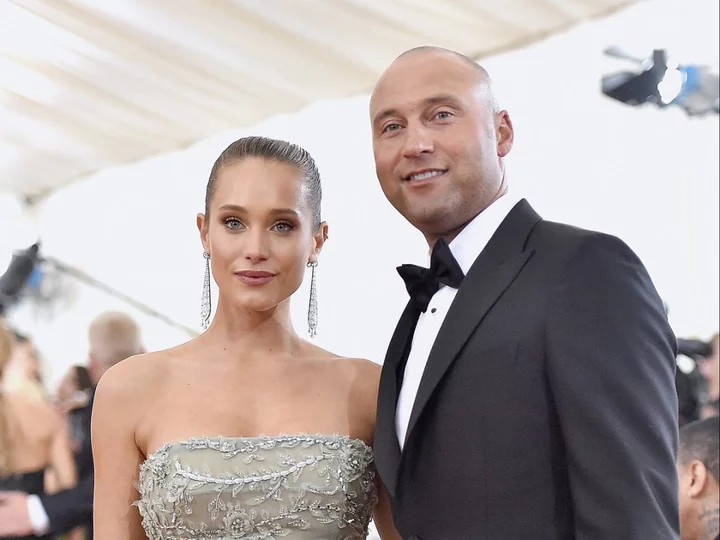
Derek Jeter changes Instagram bio to ‘sleep-deprived father of four’ as he announces birth of son
Derek Jeter has jokingly changed his Instagram bio to read “sleep-deprived father of four” while announcing the arrival of his and wife Hannah Jeter’s newborn son. On Monday 8 May, the former New York Yankees shortstop took to Instagram to share the news that his family had grown, with Jeter revealing that he and Hannah welcomed their newborn son Kaius Green Jeter on 5 May 2023. “Welcome to the world lil man!!! @hannahbjeter,” Jeter captioned a photo of the baby’s name and birth date. The five-time World Series champion’s post was met with an outpouring of congratulatory messages from his fans, followers and former teammates, with the official account for the Yankees writing: “Congratulations!!!” with three blue heart emojis. “Congrats captain,” someone else wrote, referring to Jeter’s former title of captain of the Yankees, a post he held from 2003 to 2014. Others took the opportunity to jokingly express their hopes that the newborn will follow in his father’s athletic footsteps. “Congratulations Mr Jeter!!! Thank you for providing the @yankees with their 2041 starting shortstop!!!” one person wrote, while another said: “Future Yankee.” Hannah also shared the news on her Instagram, where she reposted Jeter’s post to her Stories. In addition to son Kaius, the couple, who did not reveal they were expecting a fourth child, also have three daughters, River, 17 months, Story, four, and Bella, five. The retired athlete has spoken about his love of being a girl dad before, with Jeter telling Extra in 2022 that there’s a “whole other side” of him. “The mornings are early,” the former baseball player told the outlet. “Getting them up - they’re not in school right now - but dropping them off at school, picking them up. Tennis lessons, ballet lessons. I’m getting my nails painted and makeup on my face, dresses. So there’s a whole other side to me.” Read More Derek Jeter reveals he wore a ‘gold thong’ to break his slump during Yankee game Derek Jeter reveals he bribed his daughters with ice cream to sit through baseball game Derek Jeter gushes over being a girl dad to three daughters: ‘I’m getting my nails painted’
2023-05-09 02:53
You Might Like...
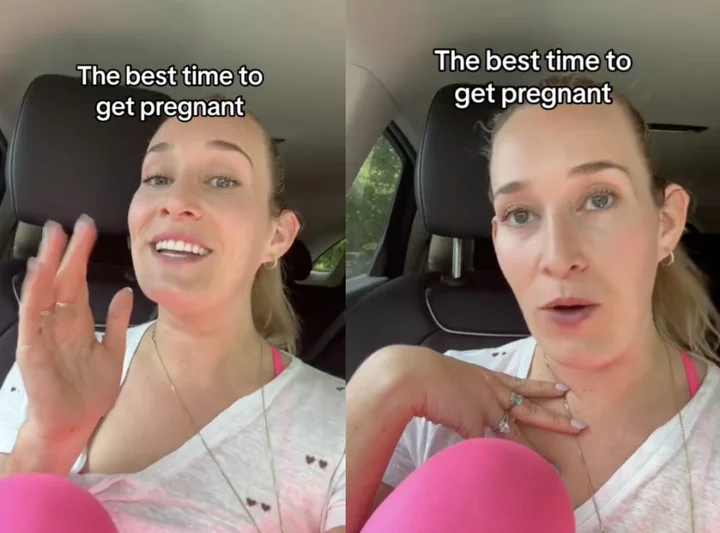
Woman sparks debate with claim she’s discovered the best month to get pregnant
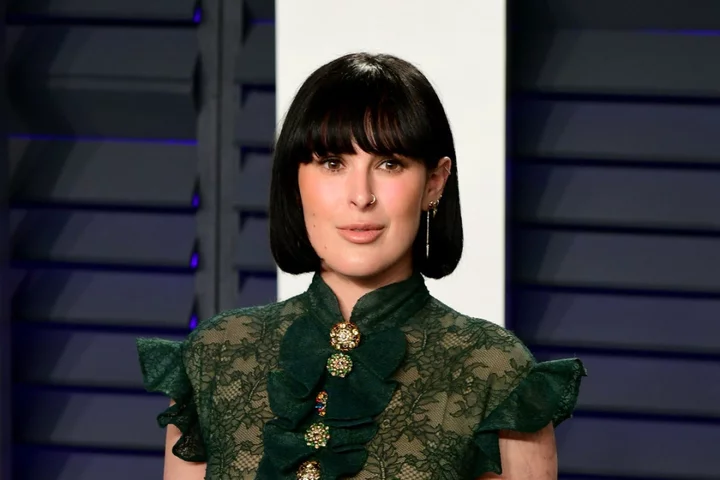
Rumer Willis says she is ‘grateful’ to her body following birth of daughter
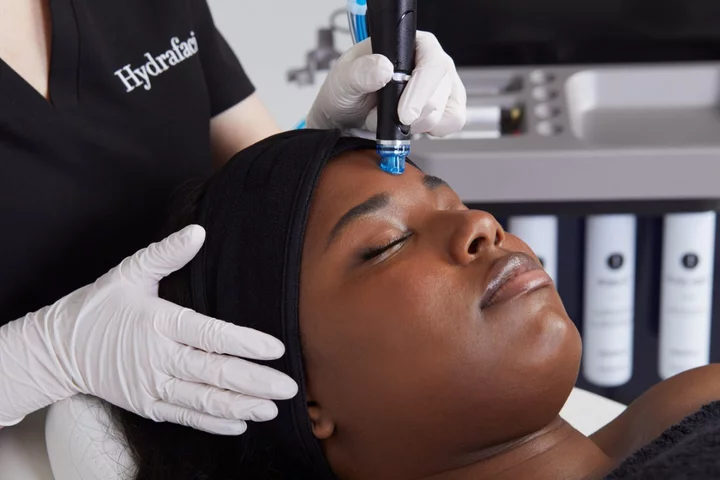
How to pick the best facial according to your age range

Jo Lindner death: YouTube bodybuilding star known as Joesthetics ‘dies from aneurysm’, aged 30

Hulk Hogan reveals he lost 40 pounds and gave up alcohol after witnessing his body ‘shut down’ on him

These are the women making waves in the cycling world
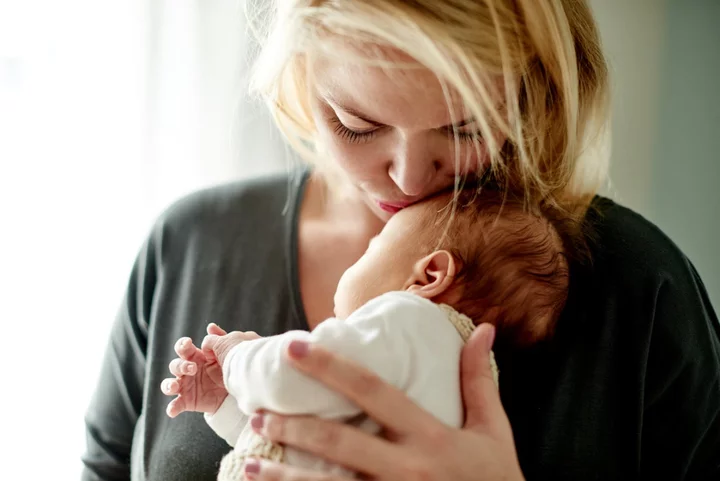
Mother defended after calling her daughter’s father ‘creepy’ over name choice for his new child
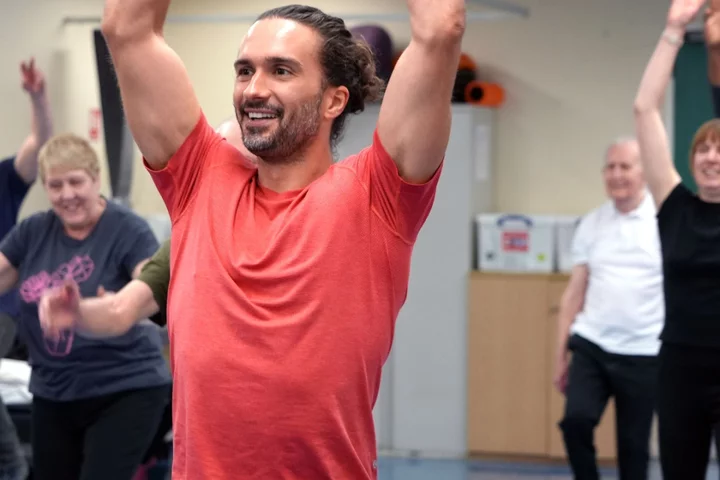
Joe Wicks makes workout video for people with Parkinson’s
